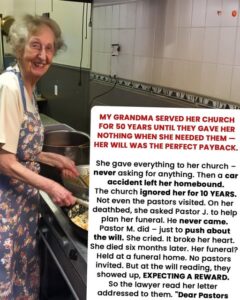The nurses had tried everything. Swaddling, rocking, even switching lullabies on that tiny Bluetooth speaker by the warmer. Nothing worked. This newborn, found alone in the backseat of a car during a routine traffic stop, had been wailing for nearly two hours. Her little face was bright red, fists clenched, lungs working overtime.
No ID. No diaper bag. Just a blanket and a pacifier on the floor.
That’s when Officer Mendez stepped in.
He wasn’t supposed to be in the NICU—he just came to file the report. But when he saw her, that tiny bundle trembling beneath the hospital lights, something shifted in his face. I saw it. Everyone saw it.
“Can I hold her?” he asked softly.
We hesitated—then nodded.
The second she was in his arms, she stopped crying. Just like that.
He sat in the chair like he’d done it a thousand times before, one hand cradling her head, the other pressed against her chest. She looked up at him. Not just calmed. Connected.
Then he leaned in and whispered something no one could hear.
And that’s when the nurse glanced at his file. Her expression changed.
“Officer… you said you had a daughter… but…”
He didn’t answer.
And that’s when things got strange.
Mendez stood up slowly, still holding the baby as if she weighed nothing more than air. His eyes flicked toward the nurse, then down to the infant in his arms. For a moment, he seemed frozen, caught between two worlds—one where he was simply an officer doing his job, and another where this moment felt too personal, too raw.
“What are you saying?” he finally asked, his voice low but steady.
The nurse hesitated, clutching the clipboard tightly. “Your file says your daughter passed away three years ago,” she said gently, almost apologetically. “In a car accident.”
A heavy silence fell over the room. The machines monitoring the baby’s vitals beeped steadily, filling the void left by unspoken words. Everyone stared at Mendez, waiting for him to explain. Waiting for him to break.
Instead, he smiled—a sad, tender smile—and kissed the top of the baby’s forehead.
“I know,” he said quietly. “I’ve missed her every day since.”
The tension in the room thickened. A few nurses exchanged glances, unsure how to proceed. Was this some kind of cosmic coincidence? Or was there something deeper at play here?
Before anyone could ask, Mendez turned to leave. But the baby began to fuss again, squirming in his arms. He paused mid-step, looking torn between duty and instinct. Finally, he handed her back to the nurse reluctantly, though not without brushing a finger along her cheek one last time.
“She deserves a chance,” he murmured, almost to himself. Then, with a nod to the staff, he walked out of the NICU.
Later that evening, I couldn’t shake the scene from my mind. As a social worker assigned to the case, I had access to all the details—the police report, the medical records, even Mendez’s personnel file. Something about the way he held the baby stayed with me, gnawing at the edges of my thoughts like an unanswered question.
So I did what any curious person would do: I dug deeper.
What I found shocked me.
Three years earlier, Mendez’s five-year-old daughter, Sofia, had indeed died in a tragic car accident. According to the reports, they were driving home from a family trip when their vehicle was struck by a drunk driver. Mendez survived, but Sofia didn’t make it. He’d been devastated, spiraling into grief so deep that colleagues worried he might never recover.
But here’s the twist: the crash occurred exactly one mile from the spot where the newborn had been abandoned. And the date? It matched the anniversary of Sofia’s death.
Goosebumps prickled my skin as I pieced it together. Coincidence? Maybe. But life has a funny way of weaving connections we can’t always explain.
Over the next few days, I kept tabs on both the investigation and the baby, who had been named Ava by the hospital staff. Despite being healthy, she remained inconsolable unless someone held her constantly. Even then, she seemed restless, as though searching for something—or someone.
Meanwhile, Mendez returned to work, though he appeared distracted. Rumors swirled among the precinct that he’d requested time off, which was unusual for someone so dedicated to the job. When I finally tracked him down at his modest apartment, I knocked on the door with a mix of nerves and determination.
“Ms. Rivera,” he said, opening the door slightly. His uniform was gone, replaced by jeans and a faded t-shirt. Dark circles shadowed his eyes, but there was a softness to his expression that hadn’t been there before.
“I need to talk to you,” I said firmly. “About Ava.”
For a long moment, he didn’t respond. Then, with a sigh, he stepped aside and let me in.
The apartment was sparse but clean, with photos lining the walls. Most featured a smiling little girl with curly hair and bright brown eyes—Sofia. My heart ached as I realized how much she resembled Ava.
“You think I’m losing it, don’t you?” Mendez said after a while, sinking onto the couch. “Holding that baby like she was mine?”
“No,” I replied honestly. “I think you connected with her because she needed you. And maybe… maybe you needed her too.”
He looked at me sharply, as if seeing me for the first time. “You don’t understand,” he said, his voice cracking. “When I held her, it felt like…” He trailed off, shaking his head.
“Like Sofia was giving you a sign?” I finished for him.
Tears welled in his eyes, but he didn’t deny it.
As the weeks went on, Mendez became a regular visitor at the hospital. At first, the staff was wary, unsure of his intentions. But soon, they grew accustomed to seeing him sitting beside Ava’s crib, reading stories or humming lullabies under his breath. Slowly but surely, Ava began to thrive. Her cries softened, her appetite improved, and she started responding to sounds and faces around her.
It wasn’t long before the adoption agency reached out. Given the circumstances, they wanted to ensure Ava went to a loving, stable home. When I suggested Mendez as a potential candidate, they were hesitant—but I persisted.
“He’s not just grieving,” I told them. “He’s healing. And so is she.”
After several interviews and background checks, Mendez was approved as Ava’s foster parent. The day he brought her home, I watched from a distance as he strapped her into her car seat, whispering promises of safety and love. It was clear he meant every word.
Fast forward two years, and the transformation was nothing short of miraculous. Ava—now officially adopted—was a bubbly toddler with a laugh that could light up a room. Mendez, once haunted by loss, had rediscovered joy through fatherhood. They attended support groups together, built routines, and created new memories. On the anniversary of Sofia’s death, they visited her grave, leaving flowers and sharing stories about the sister Ava would never meet but whose spirit lived on in their bond.
One evening, as I joined them for dinner, Mendez raised a toast. “To second chances,” he said, his voice thick with emotion. “And to the people who remind us that love doesn’t have limits.”
Life has a way of surprising us when we least expect it. Sometimes, it takes tragedy to open our hearts to new beginnings. For Mendez and Ava, their connection wasn’t just about fate—it was about choosing to move forward, together.
If this story touched your heart, please share it with others. Let’s spread hope and remind ourselves that even in the darkest moments, light can find its way back. ❤️




